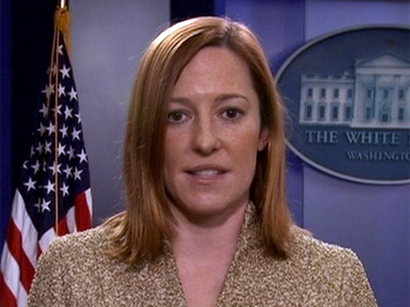The Kurdish populated border town of Kobani, which is under the control of the armed wing of the PYD, has been the scene of fierce battles between Kurdish groups and ISIL since mid-September.
The People`s Protection Units, or YPG is the armed wing of the PYD. Turkey considers the group to be an offshoot of the Kurdistan Workers’ Party, or PKK, militant group that has waged a three-decade long bloody insurgency in Turkey. The U.S. and EU have listed the PKK as a terrorist organization.
State Department spokeswoman Jen Psaki said that a U.S. official met with the PYD outside the region during the weekend.
“This was just one conversation over the weekend. So it doesn’t represent coordination. It represents one conversation,” Psaki told reporters. Nonetheless, the U.S. will continue to engage with the group, but Psaki said that she currently doesn`t have any predictions “on the frequency” of the meetings.
The announcement comes as U.S. Central Command confirmed 14 airstrikes against ISIL near Kobani Wednesday and Thursday. The strikes hit nearly 20 ISIL buildings, two command posts, three fighting positions, three sniper positions, one staging location and one heavy machine gun.
Pentagon press secretary Rear Adm. John Kirby said that the focus of U.S.-led efforts around Kobani is to deny ISIL a “safe haven and sanctuary” as the group ramps up its efforts to seize the town.
“We’ve killed several hundred of their fighters in just these strikes in and around Kobani. It would be irresponsible for us not to try to target them in a more aggressive way as they become more aggressive around Kobani itself,” he added.
Thousands of people would likely be massacred if Kobani were to fall to the militants, according to U.N. envoy Staffan de Mistura. It would also allow the group to link its self-declared capital in Raqqa with its fighting positions in the contested city of Aleppo to the west and the Iraqi city of Mosul to the east.
More about:















































